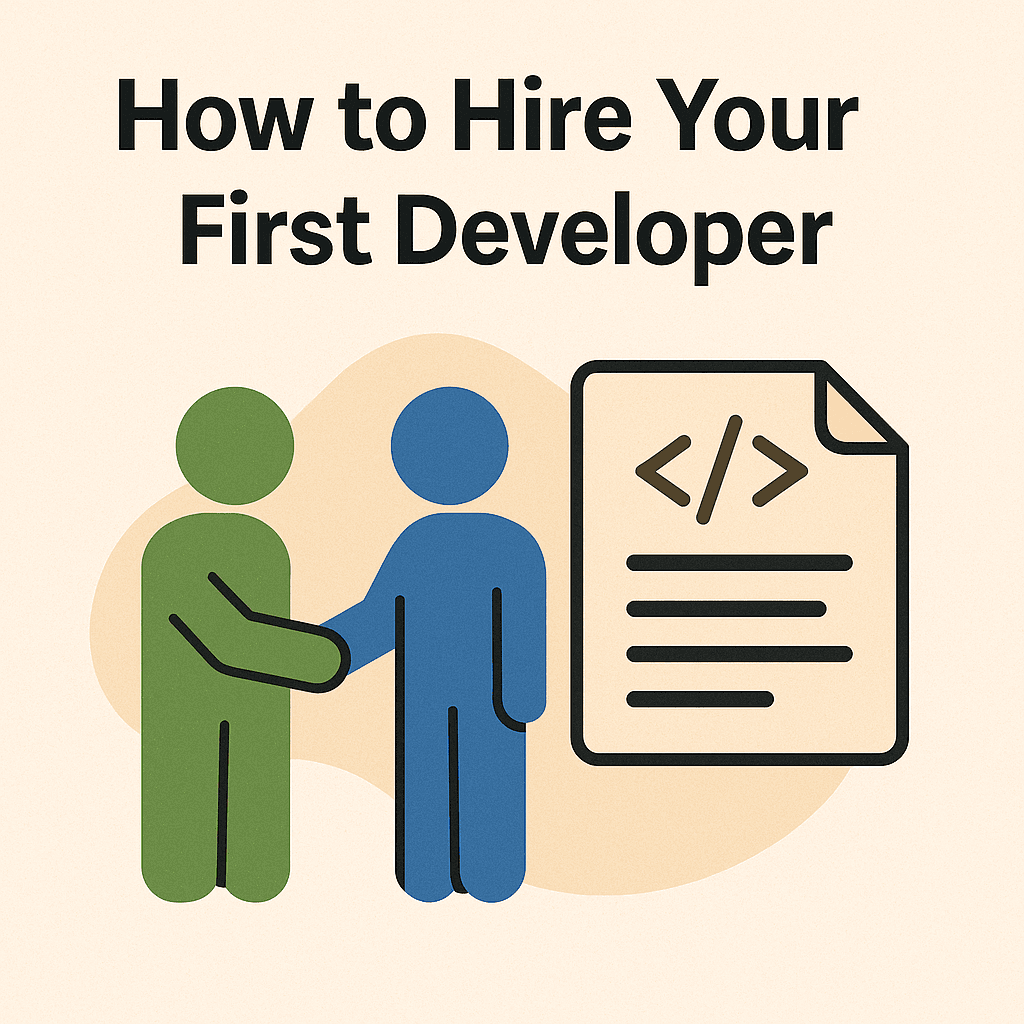How to Hire Your First Developer (Without Making the Classic Mistakes)
How to Hire Your First Developer (Without Making the Classic Mistakes)

How to Hire Your First Developer (Without Making the Classic Mistakes)
Hiring your first developer can feel overwhelming. You might be a non-technical founder, a manager in a growing company, or simply someone who knows they need tech but doesn’t yet speak the language of frameworks, databases, or cloud hosting.
I’ve been on both sides of the table: hiring and leading developers, and being the technical person on teams. Along the way, I’ve seen what makes a hire succeed — and what can turn into an expensive mistake.
Here’s what you need to know before bringing on your first tech person.
1. Get Clear on What You Actually Need
Not every programmer is the same. Some shine in building beautiful user interfaces, others thrive in complex business logic, and some focus on infrastructure and automation.
Before posting a job, ask yourself:
Do I need someone to build an MVP from scratch?
Do I need a specialist (UI, data, backend), or a generalist who can do a bit of everything?
Is this mostly about execution, or also about technical decision-making?
For a first hire, a generalist fullstack developer who is comfortable wearing multiple hats is usually the best choice. Later, you can add specialists to support them.
2. Look Beyond the Resume
Resumes can be deceiving. Some candidates list every buzzword under the sun but struggle when it’s time to actually deliver. Others are brilliant but don’t “sell” themselves well on paper.
The key is to test real skills:
Run a live coding session on a small but realistic task.
Ask them to explain their thinking process, not just the solution.
See if they can explain a technical concept in plain English — if they can’t, collaboration will be tough.
Don’t overvalue how “smooth” someone is in an interview. Many great programmers are introverted and awkward in conversation but do outstanding work.
3. Passion Beats Polished Interviews
When you’re hiring your first tech person, look for passion and curiosity. Are they excited to solve problems? Do they tinker with side projects? Do they care about the why behind your product?
Skills can be learned. Passion, ownership, and genuine interest are much harder to fake.
4. Consider a Trial Project
Instead of committing to a full-time contract right away, start with a short paid project. This lets you:
See how they work with you in real conditions.
Test communication and collaboration.
Lower risk on both sides.
5. Don’t Do It Alone
Here’s the tricky part: if you’re not technical yourself, how do you know who’s good?
That’s where many founders go wrong — they end up trusting the wrong signals.
One powerful solution is to bring in a fractional CTO or tech lead to guide the process. They can:
Translate your business needs into clear technical requirements.
Help you screen candidates and run fair evaluations.
Set up the right foundation so your first hire is successful long-term.
👉 If you’re at this stage and want guidance, you can schedule a consultation with me at stefanknoch.com. I help founders and businesses hire their first developers, build the right tech foundation, and avoid costly missteps.
Final Thoughts
Hiring your first developer isn’t about finding the mythical “perfect programmer.” It’s about finding the right match for your current needs — someone who can deliver, communicate enough to collaborate, and grow with your vision.
Start with clarity, test realistically, and don’t be afraid to get expert help in the process. Do it right, and your first tech hire will become the cornerstone of everything you build next.